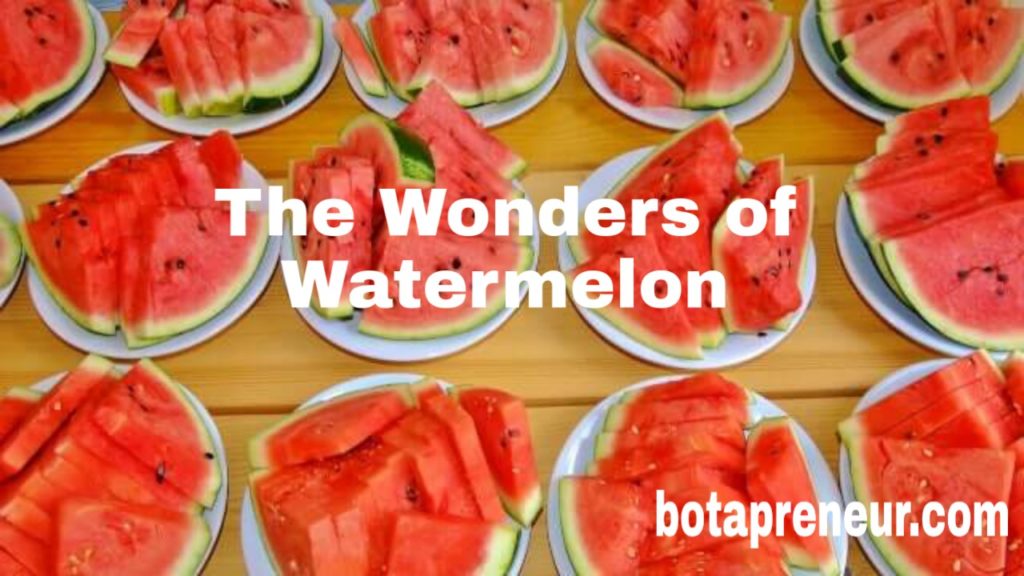Never heard of this refreshing fruit soaked with nutrients before? – -WATERMELON – – -Alongside of tomatoes, watermelon has moved up to the front of the line in recent research studies on high-lycopene foods.
Lycopene is a carotenoid phytonutrient that’s especially important for our cardiovascular health, and an increasing number of scientists now
believe that lycopene is important for bone health as well.

Watermelon is a delicious fruit that grows on the tree of the same name, and belongs to Cucurbitaceae family, and relates with cucumber, squash, pumpkin etc. Watermelon is unique in the sense that it is considered both as a fruit and as a vegetable. It is a fruit as it grows from the seed, and at the same time, they are considered as a vegetable because they are harvested from the field just like a vegetable.
Consuming watermelon is very beneficial for us as it provides a lot of health and beauty benefits because of the presence of vitamins,minerals,
antioxidants, dietary fibers and other compounds present in it. Although watermelon provides a lot of health and beauty benefits but it is important to eat watermelon in moderate quantity as there are some side effects of eating too many watermelons .
Watermelon is now the most-consumed melon in the US (followed by cantaloupe and honeydew). Watermelon contains more of the antioxidant
lycopene than fresh tomatoes; one cup of watermelon has 1.5 times the lycopene as a raw tomato. This might not be surprising, but it’s still a fun fact; watermelon is more than 91 percent water. This means that eating watermelon with you on a hot summer day is a tasty way to help you stay hydrated and avoid dehydration (it’s not a substitute for drinking plenty of fresh water, however).
WHEN you think of the health benefits of watermelon, the seeds probably do not come to your mind. You probably think of the sweet, juicy pulp without considering the seed as being good too. The fact is, watermelon seeds whether wet, dry or roasted make a great snack. The United States Department of Agriculture has listed different nutritional components of the seeds.

The truth is, watermelons seeds are 100 percent safe for consumption! I actually know some people who like to eat them, including many who roast them with salt like pumpkin seeds . They’re a tasty snack if you give them a chance. Maybe that’s why our parents told us not to eat the seeds .
Lycopene in watermelon is a phytonutrient, which is a naturally occurring compound in fruits and vegetables that reacts with the human body to trigger healthy reactions. It is also the red pigment that gives watermelons, tomatoes, red grapefruits and guavas their color.
Lycopene has been linked with heart health, bone health and prostate cancer prevention. It’s also a powerful antioxidant thought to have anti- inflammatory properties.
As we anticipate the weekend , try to stock your freezer with watermelon.
Enjoy ! ! !

